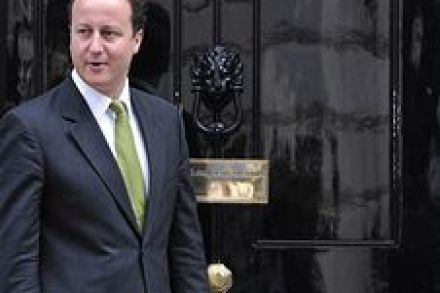Cameron lays the ground for cuts
David Cameron’s speech today was about preparing people for the cuts to come, persuading them that Labour’s mismanagement of the public finances had made this ‘unavoidable’ and reassuring them that he had no ideological desire to make cuts and so would do them in the most sensitive way possible. Cameron managed to pull this off fairly effectively. He is managing the rhetorical transition from leader of the opposition to Prime Minister fairly well. In a way, what Cameron is doing now is the easy bit: the intellectual case for dealing with the deficit is unarguable. It is when the Coalition has to outline not broad principles but the specifics that




















